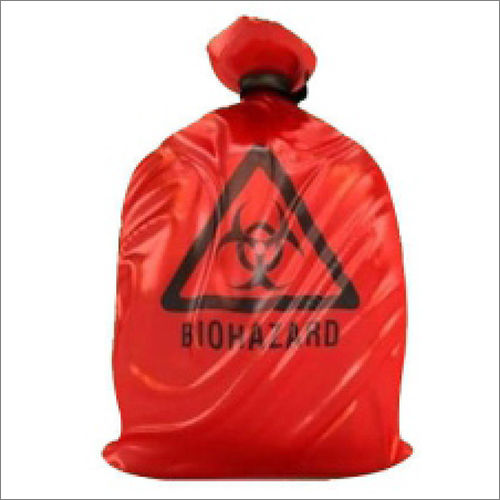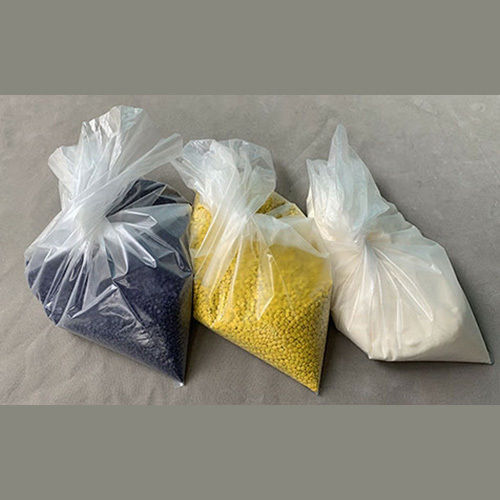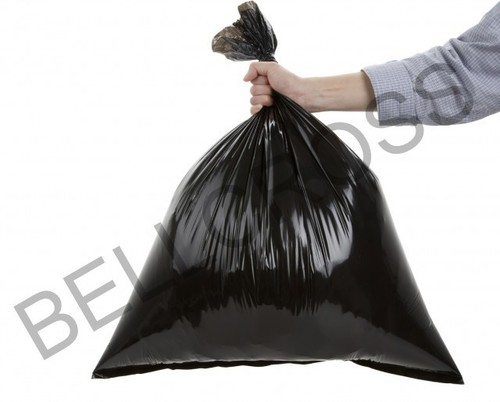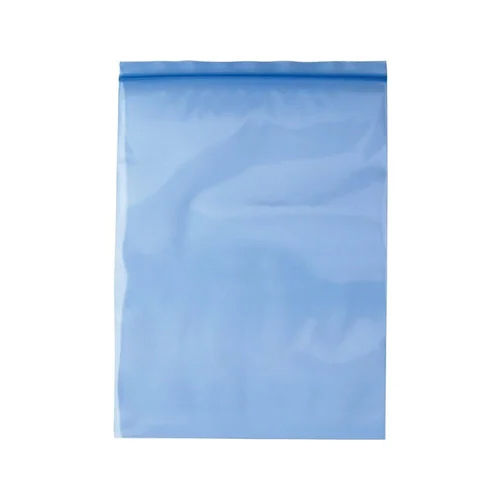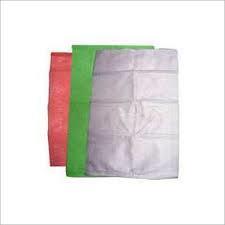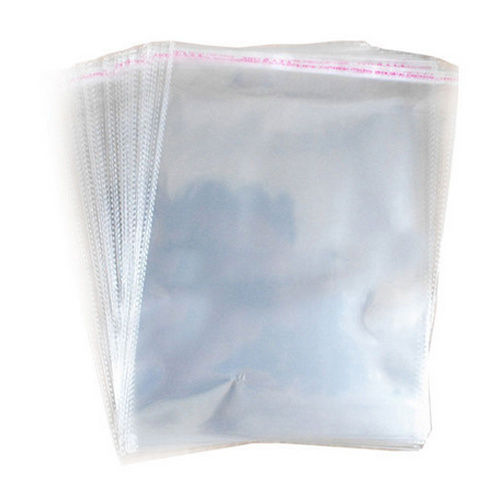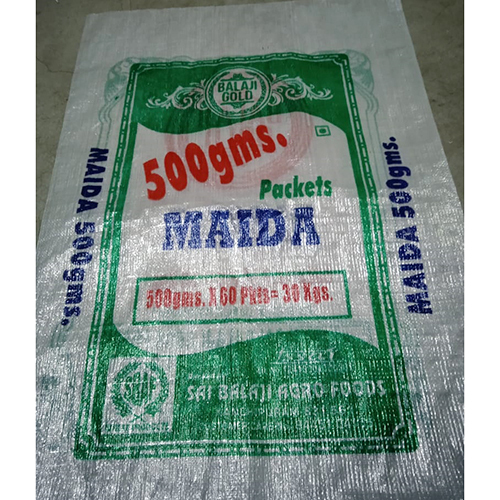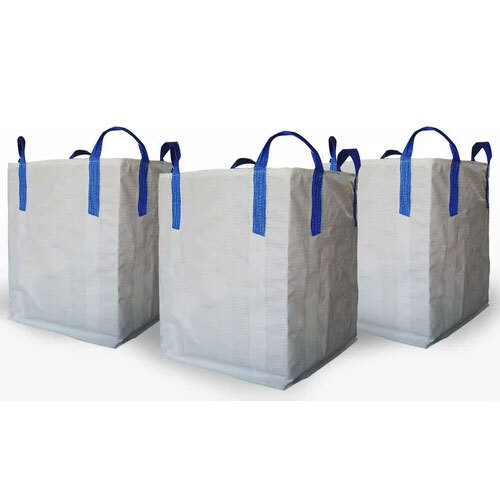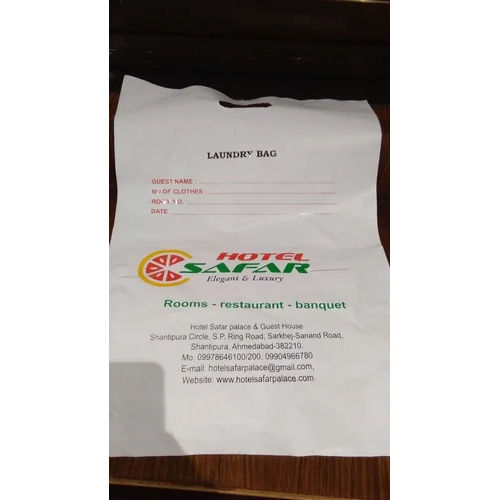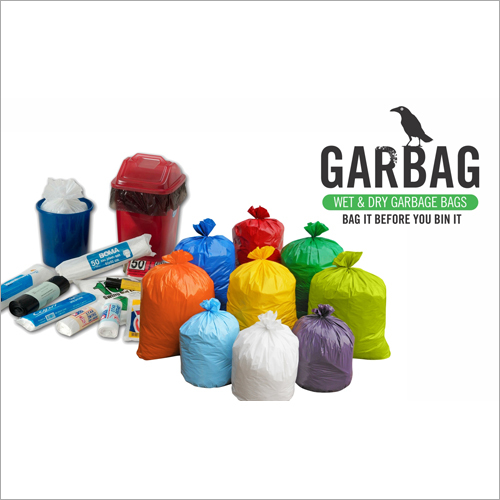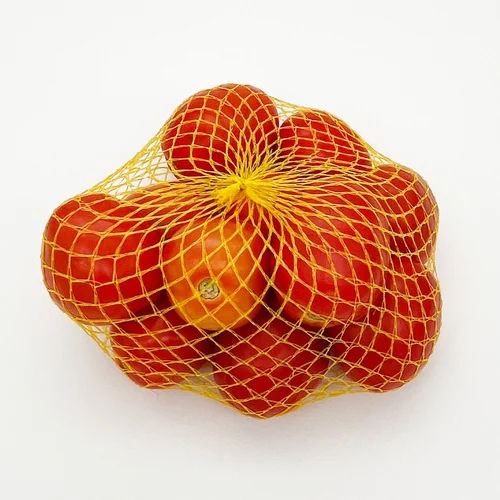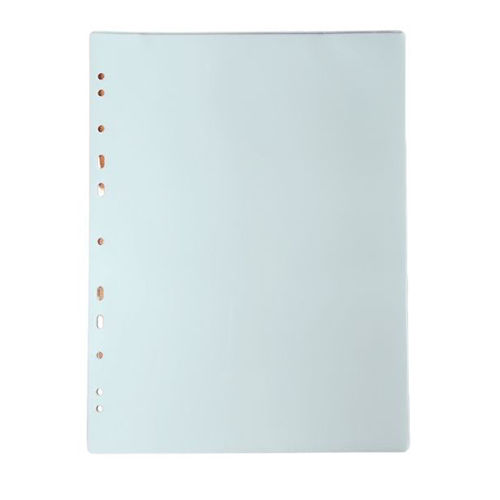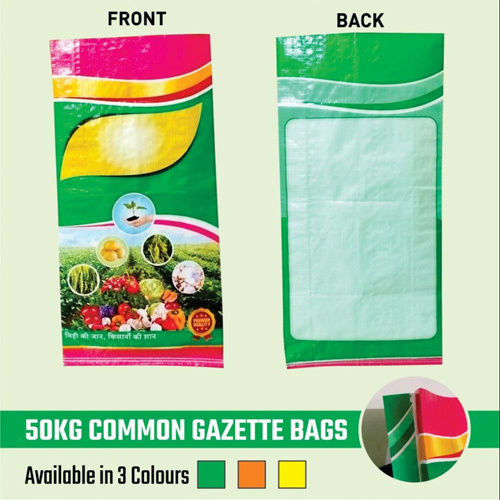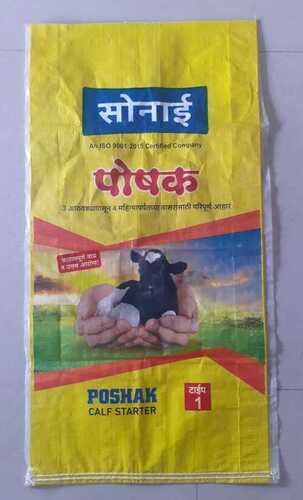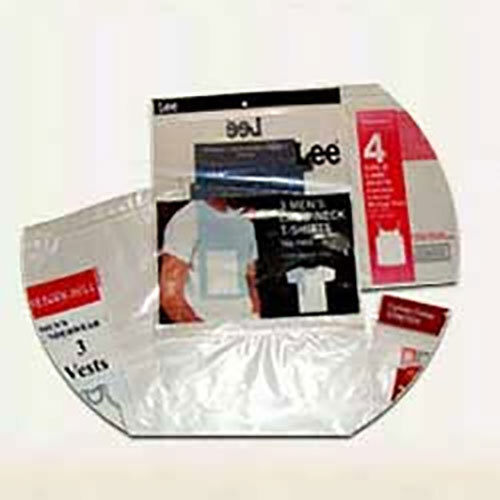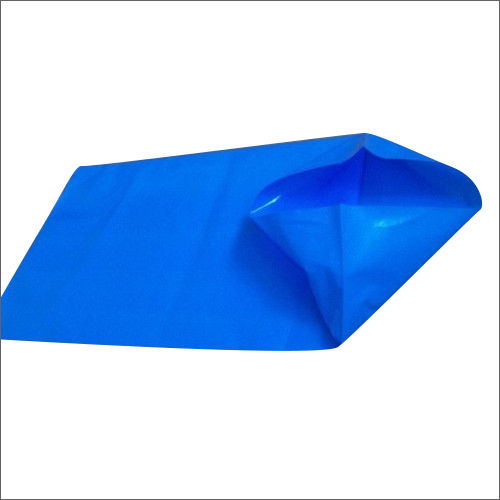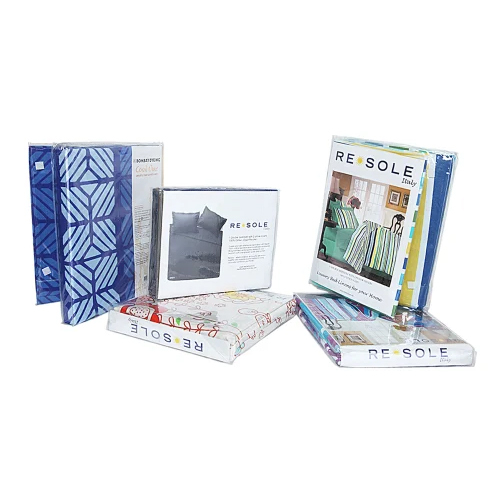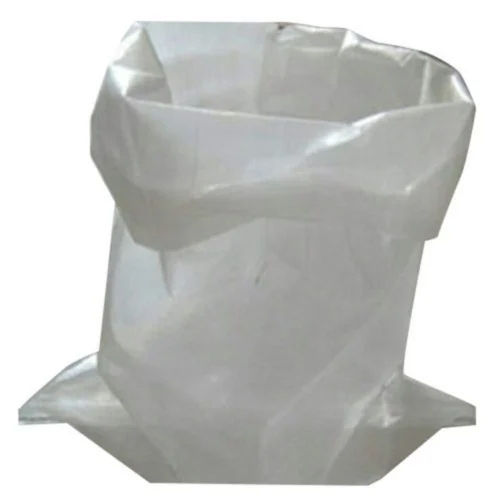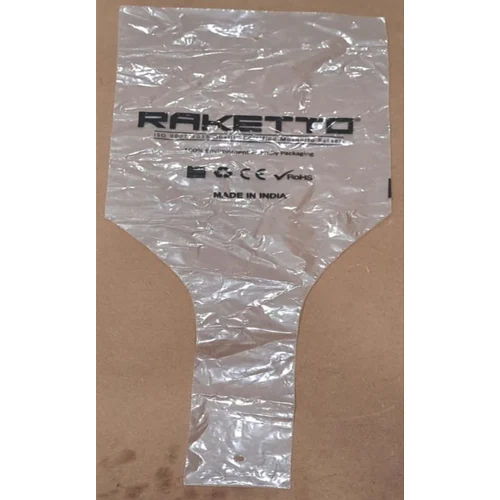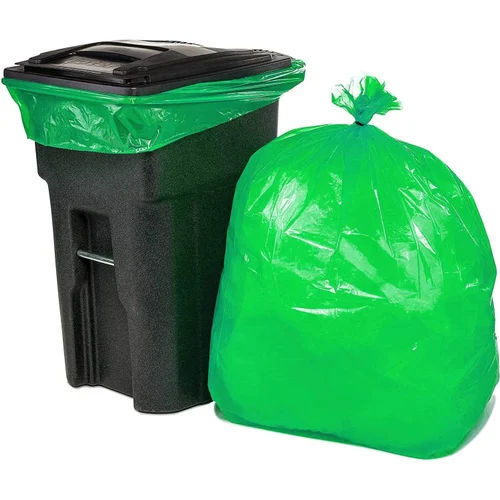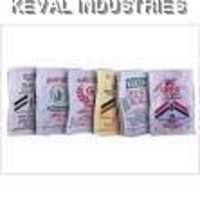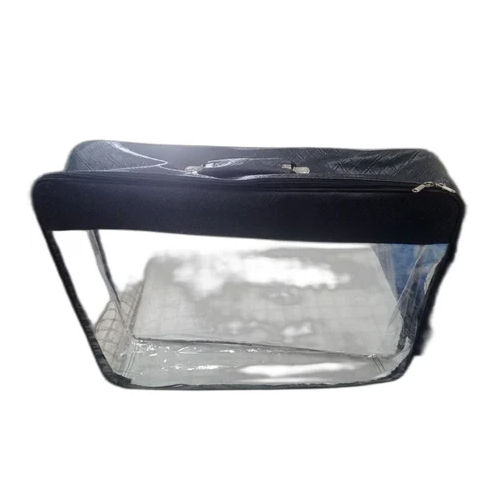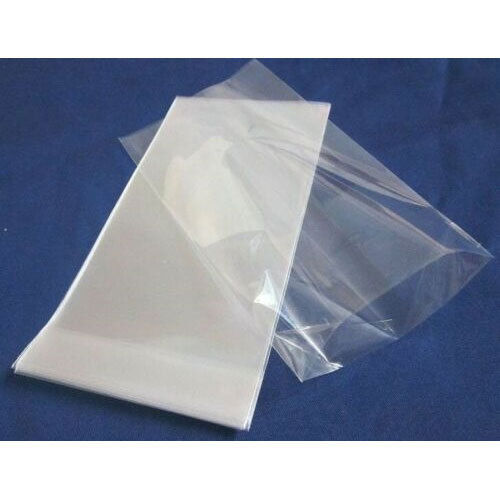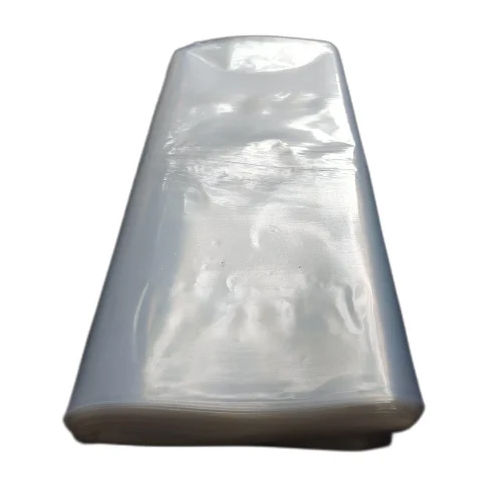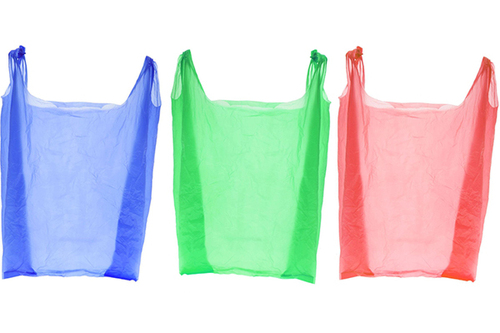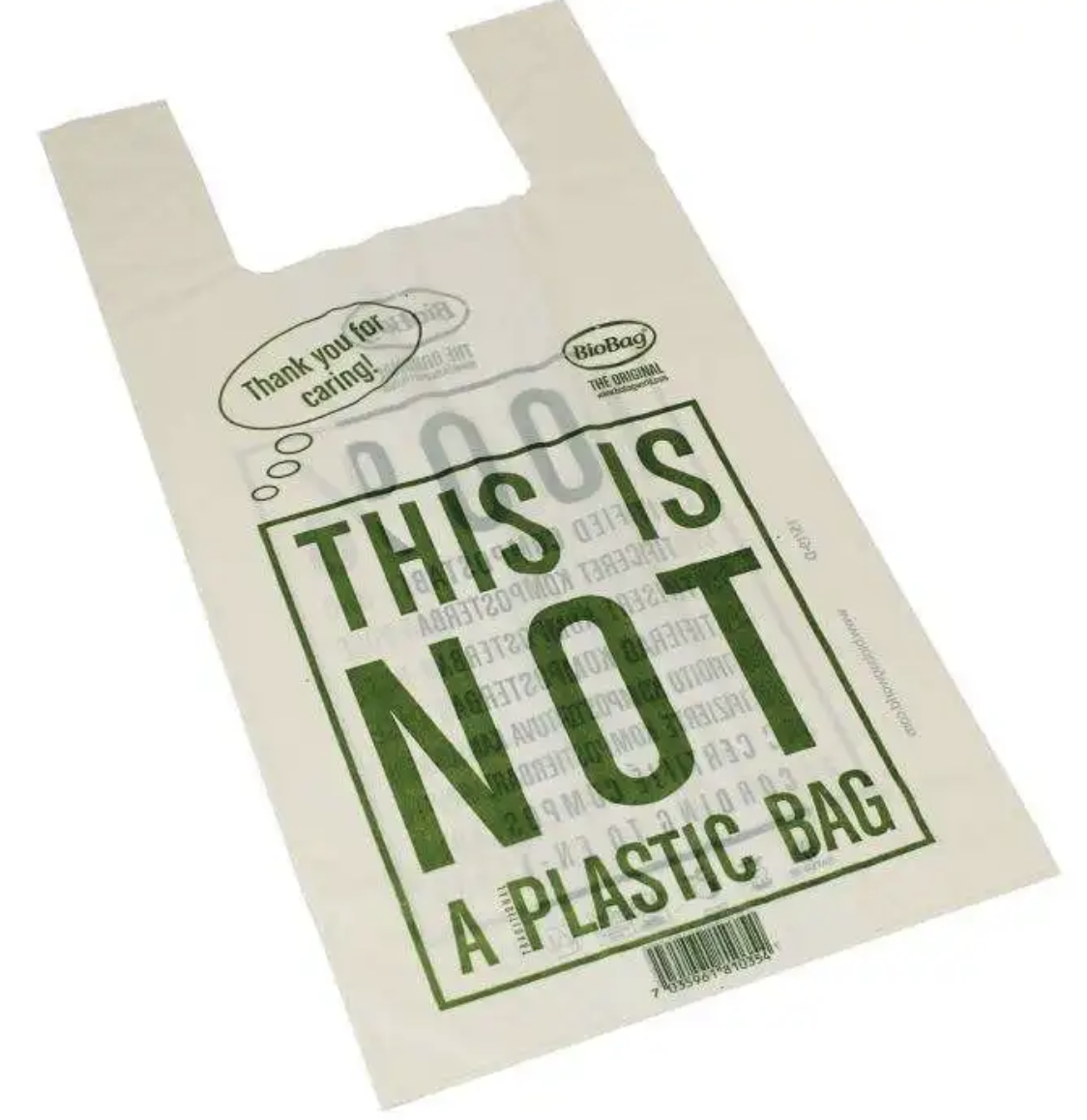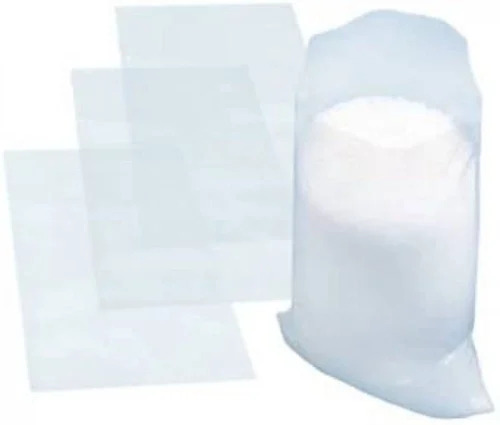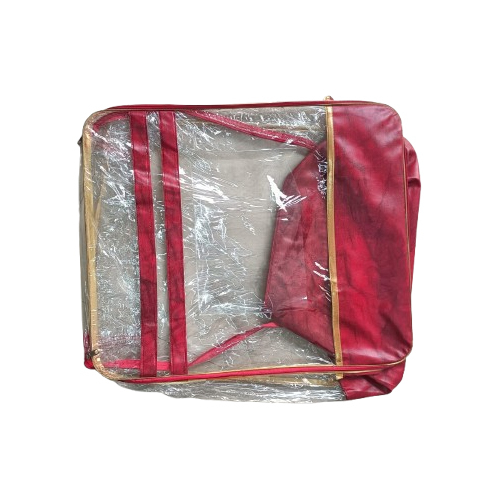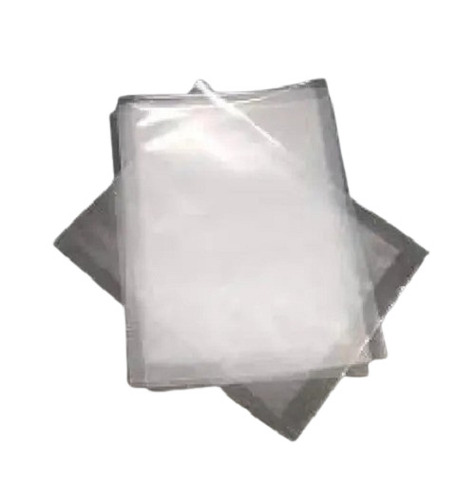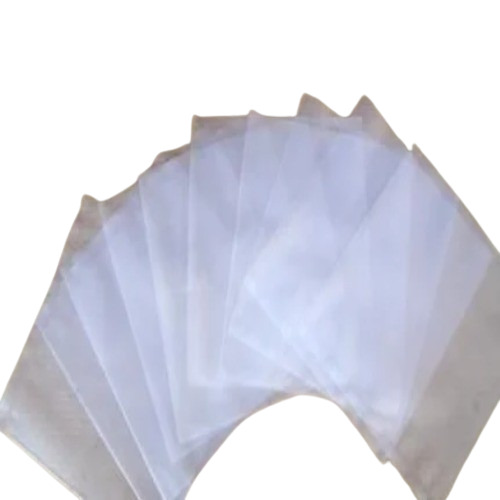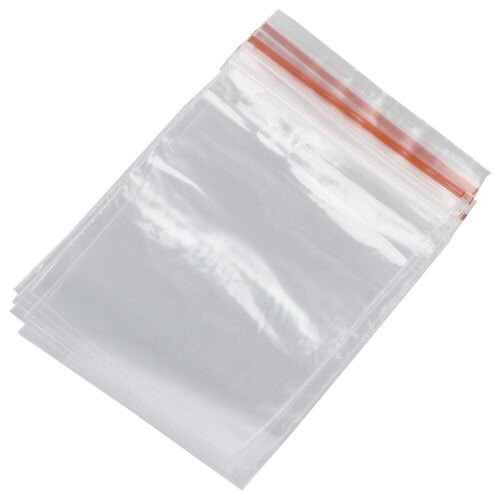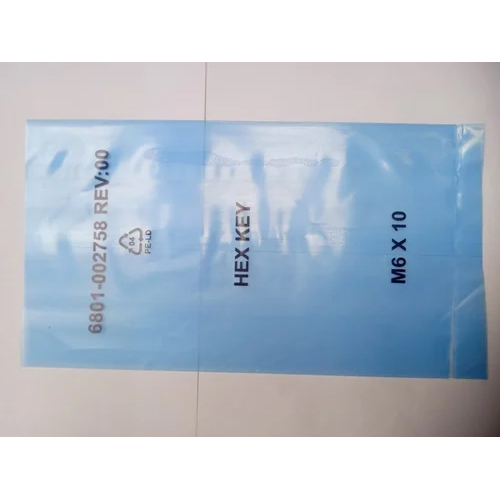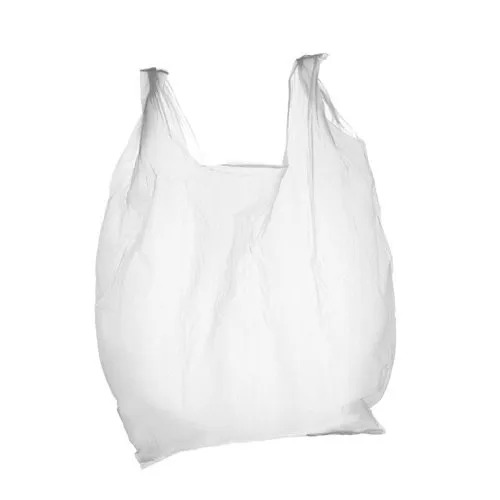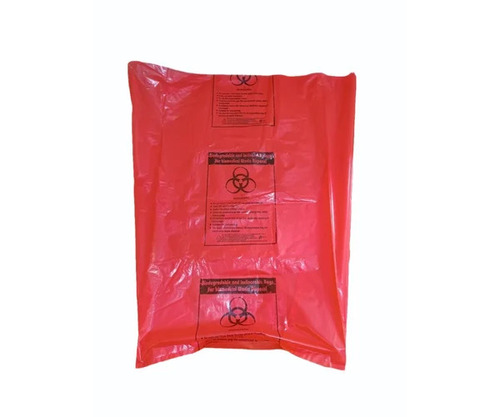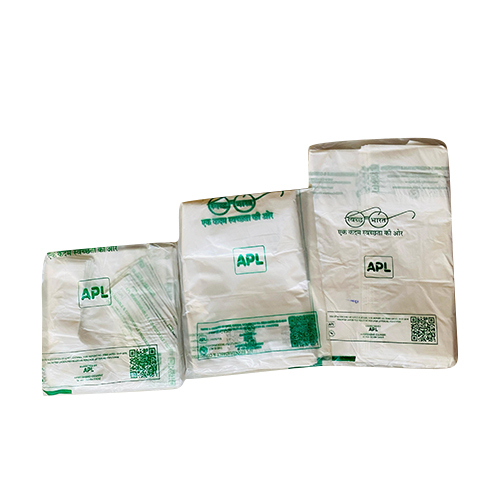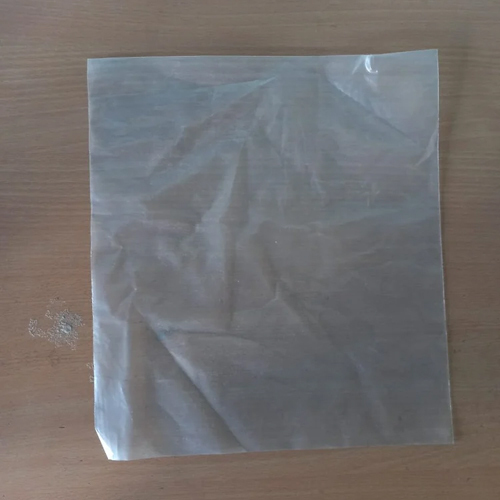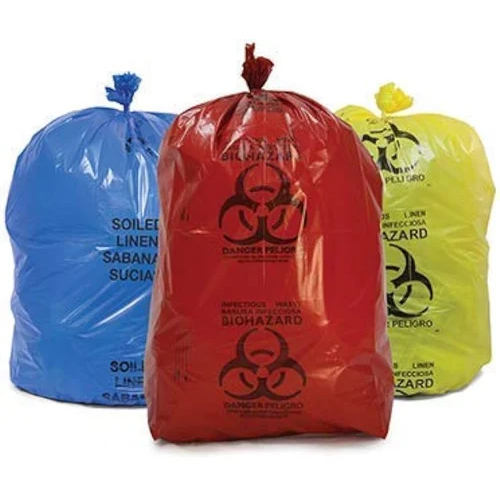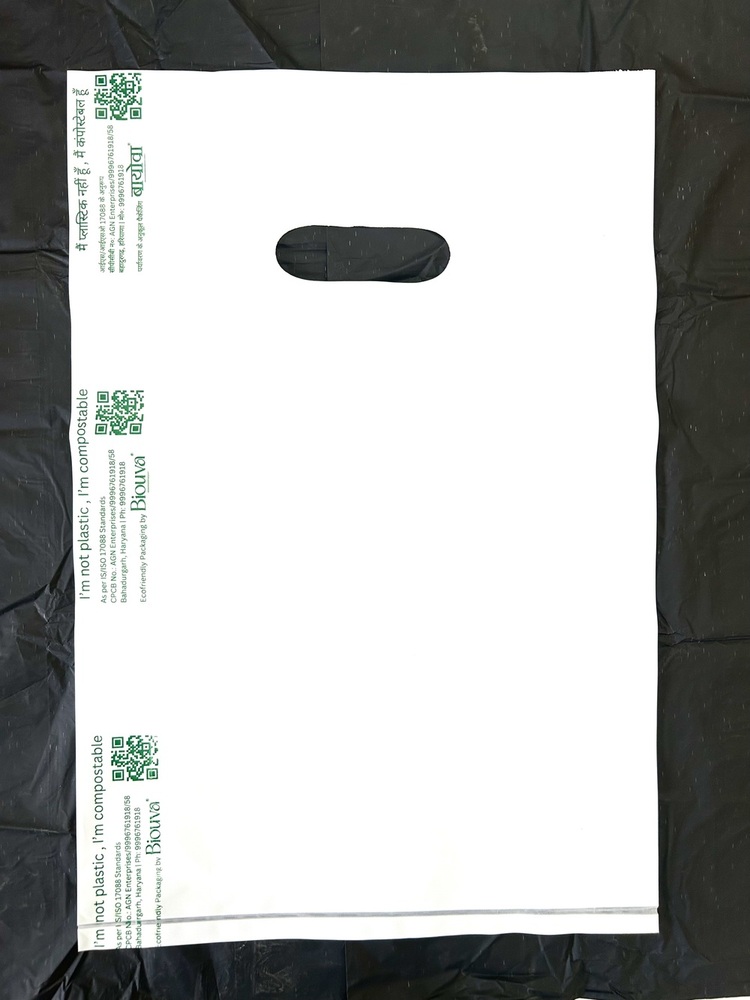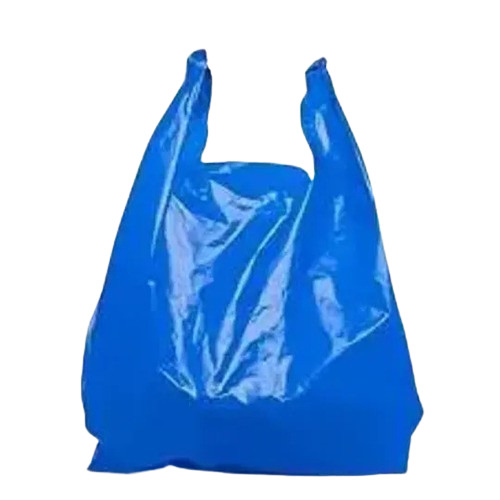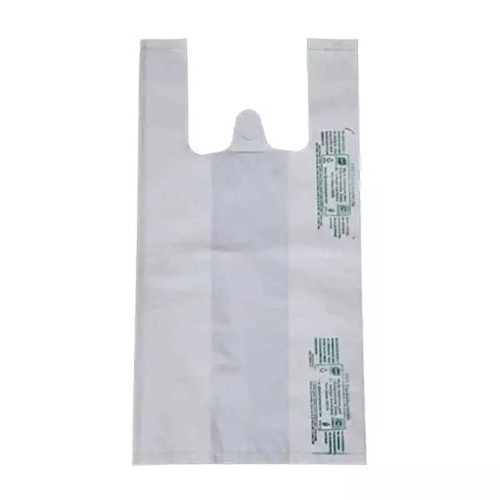Plastic Bags
(10314 products)Pvc Biomedical Waste Bag
Price: 120 INR/Kilograms
MOQ100 Kilograms/Kilograms
MaterialPVC
HandlesFlexiloop Handle
SizeDifferent Available
UseGarbage
Ageln Surgical And Healthcare Private Limited
Mumbai
 Super Bonanza
Super Bonanza4 Years
Eco-Friendly Disposable Bag Use: Food
Price: 385 INR/Kilograms
MOQ100 Kilograms/Kilograms
UseFood, Household
Disposable Point
Gurugram
10 Years
Yellow Eva Plain Bags
Price: 290 INR/Kilograms
MOQ200 Kilograms/Kilograms
ColorYellow
MaterialEVA
Jindal Plastics Enterprises
Delhi
6 Years
Garbage Bag - PP Material, Various Sizes Available , Durable and Cost-Effective in Black
MOQ100 Piece/Pieces
MaterialPP
ColorBlack
UseGarbage
Bellcross Industries Pvt. Ltd.
Mumbai
17 Years
Vci Plastic Bag - Color: Blue
Price: 190 INR/Kilograms
MOQ100 Kilograms/Kilograms
MaterialPP
Surface HandlingAqueous Coating
SizeDifferent Available
ColorBlue
UseBeverage, Garbage
Siddhi Packaging Solutions
Pune
3 Years
HDPE Bags - High Strength, Load Carrying Capacity | Durable and Versatile for Varied Uses
Product DescriptionWe have full devout in manufacturing and supplying qualitative range of HDPE Bags in Hyderabad, Telangana, India. Our offered HDPE Bags are much appreciated in the market for high strength and load carrying capacity. Offered HDPE Bags are procured from reputed vendors in various specifications for
M/s Legend Polymers
Hyderabad
3 Years
Transparent Ld Plastic Bags
MOQ100 Kilograms/Kilograms
MaterialOther, LD
Surface HandlingHot Stamping
HandlesOther
ColorTransparent
UseOther
Gold Plast
Bhosari
3 Years
Polythene Carry Bag - Color: Transparent
Price: 100 INR/Kilograms
MOQ100 Kilograms/Kilograms
ColorTransparent
MaterialPVC
HandlesFlexiloop Handle
FeatureEmbossing
Sizestandard
UseGrocery, Apparel
Md Plast (india) Private Limited
Delhi
3 Years
30Kg Maida Plastic Bag - Color: Different Available
Price: 13 INR/Piece
MOQ100 Piece/Pieces
MaterialPP
Surface HandlingEmbossing
HandlesFlexiloop Handle
FeatureScreen Printing
Size30 kg
ColorDifferent Available
Sree Poly Sacks
Chittoor
2 Years
Polypropylene Bulk Bags - Color: White
Price: 150 INR/Kilograms
MOQ100 Kilograms/Kilograms
MaterialOther, Polypropylene
HandlesOther, Hand Length Handle
FeatureOther
SizeStandard
ColorWhite
UseShopping, Grocery, Food, Other
Sneha Polyfab Pvt Ltd.
Surat
1 Years
Plastic Laundry Bag - PVC Material, 14x19 Inches Size, White Color - Perfect for Shopping and Storage
Price: 4.50 INR/Piece
MOQ3000 Piece/Pieces
MaterialPVC
Size14 x 19
ColorWhite
UseShopping
Snehmeet Enterprise
Ahmedabad
3 Years
Blue Garbage Bags
Price: 500 INR/Kilograms
MOQ5000 Kilograms/Kilograms
ColorBlue,Green,Yellow,Pink
HandlesOther
FeatureOther
UseOther
Pilani Udyog
Dadra and Nagar Haveli
10 Years
Tomato Packaging Net - Color: Various Available
Price: 2288 INR/Piece
MOQ100 Piece/Pieces
ColorVarious available
MaterialPolyester, Other
Surface HandlingVarnishing
SizeCustomized
UseFood
Chirantana Equipack Pvt. Ltd.
Bengaluru
2 Years
Speicial Pouches - Color: Different Available
MOQ100 Piece/Pieces
MaterialPP
Surface HandlingEmbossing
HandlesPatch Handle
FeatureOffset Printing
SizeMultiple size available
ColorDifferent Available
Yidu Group Co., Ltd.
New Taipei City
2 Years
Printed Fertilizer Packaging Bag - Color: Multicolour
Price: 33 INR/Piece
MOQ500 Piece/Pieces
MaterialBOPP, Other
Surface HandlingOffset Printing
FeatureFlexo Printing
Size22X34
ColorMulticolour
Fame Creation
Indore
2 Years
Cattle Feed Bags - Plastic Material | Durable, Weather-Resistant, Economically Designed for Livestock Care
Price Trend: 15.00 - 50.00 INR/Piece
MOQ5000 Piece/Pieces
MaterialOther, Plastic
Shripad Polymers Pvt Ltd
Pune
4 Years
Ldpe Slider Bags - Color: Transparent
Price: 3 INR/Piece
MOQ10000 Piece/Pieces
ColorTransparent
MaterialOther, LDPE
HandlesZipper Top
SizeDifferent Available
Mayank Plastics (r)
Delhi
16 Years
Blue Plastic Anti Skid Bag
Price: 80 INR/Piece
MOQ25 Piece/Pieces
MaterialOther
ColorBlue
Gujarat Marketing
Ahmedabad
13 Years
Transparent Pvc Zipper Pouch - Color: Multicolor
MOQ100 Piece/Pieces
MaterialPVC
HandlesOther
FeatureFlexo Printing
SizeCustomized
ColorMulticolor
UseOther
Artek Solutions (india)
Delhi
3 Years
LDPE Fire Retardant Plastic Bag - White, Durable Material with Embossed Grip | Customizable Offset Printing for Grocery Safety
Price: 360 INR/Kilograms
MOQ500 Kilograms/Kilograms
ColorWhite
MaterialOther, LDPE
Surface HandlingEmbossing
FeatureOffset Printing
Arihant Industries (india)
Daman
2 Years
Printed Pearl Ld Poly Bag Size: 12 X 18 Inch
Price: 180 INR/Kilograms
MOQ250 Kilograms/Kilograms
MaterialOther, LD
Surface HandlingOther, Printed
Size12 x 18 Inch
ColorPrinted
UseApparel
Nandu Packaging
New Delhi
2 Years
Green Biodegradable Garbage Bags
MOQ50 Piece/Pieces
MaterialPVC
Surface HandlingEmbossing
HandlesHand Length Handle
SizeDifferent available
ColorGreen
UseGarbage
Shri Balaji Agencies
Chennai
2 Years
LD Anti Static Bag - PE Material, Customised Size, Pink Color | Hot Stamping, Durable and Lightweight Grocery Packaging Solution
Price: 160 INR/Kilograms
MOQ25 Kilograms/Kilograms
MaterialPE
FeatureHot Stamping
SizeCustomised
ColorPink
UseGrocery
S V Industries
Pune
3 Years
Printed Plastic Hdpe Bags
Delivery Time1 Week
Sample PolicyContact us for information regarding our sample policy
Main Export Market(s)Asia
Keval Industries
Navi Mumbai
16 Years
White Customized Bio Decomposable Non Woven W Carry Bag
Price: 112.00 INR/Kilograms
MOQ50 Kilograms/Kilograms
ColorWhite
Product TypeBags
MaterialNon Woven, Other
FeatureAntistatic, Aseptic, Moisture Proof
UseFor Storing
Sss Sourcings
Tirupur
4 Years
PVC Zipper Top Storage Bag - Durable Transparent PVC | Versatile Sizes for Household Items, Easy Access and Organization
Price: 80 INR/Piece
MOQ100 Piece/Pieces
ColorTransparent
MaterialPVC
HandlesZipper Top
SizeDifferent Available
UseHousehold
Liba Handloom House
New Delhi
2 Years
Ldpe Bags For Food And Pharma Industries - Color: Black
Price: 135 INR/Kilograms
MOQ2000 Kilograms/Kilograms
MaterialOther
SizeStandard
ColorBlack,Blue & Transparent
Mono Industries
New Delhi
18 Years
100 Micron Plastic Bag Size: Different Available
Price: 138 INR/Kilograms
MOQ100 Kilograms/Kilograms
Surface HandlingEmbossing
HandlesFlexiloop Handle
SizeDifferent Available
UseShopping
Matolia Tradelink Llp
South 24 Parganas
Latest From Plastic Bags
Ready To Ship Plastic Bags
Plastic Bags & Their Utility
Plastic bags, poly bags, and pouches are containers constructed of flexible, thin plastic film, plastic textiles, or nonwoven fabric. Plastic bags are often used to store and carry items such as groceries, fruit, powders, ice, periodicals, chemicals, and garbage. It is a popular kind of packing. Heat sealing is the most common method for closing plastic bags, however adhesive bonding and hand stitching are sometimes used.
Types of Plastic Bags
Choosing the correct plastic bag may be a difficult process given the variety of options available. This is mostly due to the fact that plastic bags are constructed of many materials, each of which provides consumers with unique benefits. They are also available in a variety of blended forms and colors. There are several types of plastic bags available; however, by being acquainted with each kind, you may significantly restrict your options and choose the best bag for your purposes. So, let's get started and look at the many kinds of plastic bags on the market today:
High Density Polyethylene (HDPE): HDPE, one of the most commonly used polymers worldwide, has a range of properties that make it a great material for creating plastic bags. It is lightweight, reasonably clear, resistant to water and temperature, and has high tensile strength. In addition, HDPE plastic bags exceed USDA and FDA food handling rules, making them a popular option for keeping and serving food in take-out and retail. HDPE plastic bags are often used in restaurants, convenience shops, grocery stores, delis, and even residences for storage and packing. HDPE is also used to make laundry bags, T-shirt bags, utility bags, and waste bags.
Low Density Polyethylene (LDPE): This plastic is often used for bags with moderate strength and flexibility, bread bags, food bags, and utility bags. Though LDPE bags are not as robust as HDPE bags, they may store large commodities such as groceries and meat. Furthermore, the transparent plastic allows restaurateurs to easily recognize the contents, helping them to keep up in the fast-paced environment of commercial kitchens. LDPE plastic bags, on the other hand, are very adaptable and, because of their low melting point, are ideal for use with heat-sealing. LDPE also complies with food handling rules and is sometimes used to produce bubble wrap.
Linear Low-Density Polyethylene (LLDPE): The gauge of LLDPE plastic bags is somewhat narrower than that of LDPE bags, which is primarily how they vary from one another. The nicest thing about this plastic, however, is that there is no change in strength, allowing customers to save money without sacrificing quality. LLDPE bags have a moderate degree of transparency and are used to make rubbish bags, shopping bags, newspaper bags, and food bags. They are used in industrial kitchens for bulk food storage since they may also be employed for food storage in freezers and refrigerators.
Polyethylene Medium Density (MDPE): MDPE is more transparent than HDPE, but not as transparent as low-density polyethylene. Bags manufactured with MDPE do not have a high degree of strength and do not stretch well, thus they are not recommended for transporting or storing bulk materials. However, MDPE is often used to make rubbish bags and is frequently found in the packaging of paper goods for consumers, such as toilet paper or paper towels.
Polypropylene (PP): PP bags are distinguished by their exceptional chemical resistance and strength. Polypropylene bags, unlike other types of bags, are not permeable and are good for retail scenarios owing to their extended shelf life. PP is also utilized in food packaging, where chocolates, nuts, herbs, and other confectionaries may be readily preserved in PP bags. These bags are more transparent than others, giving consumers more vision. Due to their high melting point, PP bags are also excellent for heat sealing and, like other plastic bag choices, are certified for food handling.
Pros and Cons of Plastic Bag
Pros:
- They are practical.
- They are long-lasting and may be used several times.
- They are more compact than paper bags in landfills.
- Recycling a pound of plastic requires 91% less energy than recycling a pound of paper. Paper throwaway bag recycling rates range from 10% to 15%, while plastic recycling rates are as low as 3%.
Cons:
- Every year, between 500 billion and 1 trillion plastic bags are used globally.
- Every minute, around 1 million plastic bags are used.
- A single plastic bag might take anything from 20 to 1,000 years to decompose.
- The United States uses 100 billion single-use plastic bags per year. This costs merchant around $4 billion every year.
- Even after they degrade, plastic bags are still harmful.
- Approximately 46,000 bits of plastic float in every square mile of the ocean.
- In just four grocery shop visits, the typical household collects 60 plastic bags.
- Anywhere between and
- Recyclable bags make up about 5% to 3% of all bags.
- Every year, 10% of the plastic generated around the globe ends up in the ocean. 70% of it ends up on the ocean bottom, where it will most likely never decompose.
Facts about Recycling of Plastic Bags
Some facts about recycling plastic bags are:
The initial plastic bag was not intended to be a single-use item: Sten Gustaf Thulin, a Swedish engineer, designed the plastic bag we know today in the 1960s. Despite the fact that various multi-material bags had been produced in the preceding decade, Thulin was the first to invent a simple one-piece bag with a large load capacity. Thulin, on the other hand, wanted these long-lasting bags to eliminate the need to cut down trees for paper bags.
Each year, between 1 and 5 trillion plastic bags are used: Although it might be difficult to gauge the full extent of plastic bag use, it is believed that Five trillion plastic bags are being used annually worldwide! The United States contributes around $100 billion to this number, with 12 billion barrels of oil necessary for the industry. Even with recent demands to reduce the usage of plastic bags, efficient plastic bag recycling will be critical to dealing with the existing bag population.
Each plastic bag is used for about 12 minutes: We already know that the majority of plastic fruit and shopping bags will only be used once, and lobbyists for the plastics sector are primarily to blame for this addiction to single-use plastics. The average amount of time each plastic bag is used before being discarded is thought to be just 12 minutes. Regardless matter whether some companies wish to maintain single-use bags in circulation, customers have the ability to refuse bags, keep them in use for extended periods of time, and ensure they are redirected to plastic bag recycling initiatives.
It takes almost 500 years for a bag to degrade: The decomposition of shopping bags releases microplastics into the environment and takes up to 500 years since they are not biodegradable. Even though microplastics have now been found at every level of the food chain, despite the current attention paid to their threat, nothing is known about their actual effects.
Plastic bag recycling is new a but expanding: It is essential to keep in mind that bags are often not able to be recycled via curbside pickup systems. Plastic bags must be recycled using special machines specialized for this material because they get trapped in the mechanisms of regular machines. Nonetheless, plastic bag recycling initiatives are expanding, and some towns provide this service. Check with your local recycling center or input your zip code to find the nearest facility.
Plastic bags are often recycled to manufacture additional plastic bags: The majority of plastic bags are recycled into new plastic bags due to poor materials and manufacturing inefficiencies. Therefore, it is always best to reduce waste and reuse it.
Biodegradable bags are not always the best option: As the campaign to eliminate non-biodegradable plastic bags gains momentum, several firms are now developing bio-degradable bags. Yet, the environmental promises made by these goods are largely unproven, and some have been found to degrade extremely slowly. With the volume of bags supplied, switching to these items wholesale may not be the best solution. The best ways to reduce trash are reduction and reuse, and the only certain method to do it is to bring your own bag.
FAQs: Plastic Bags
Why should we keep plastic bags?
Compared to cotton and paper bags, they consume less water, need fewer chemicals, and emit fewer greenhouse gases.
Are plastic bags eco-friendly?
The fact that plastic bags take a very long time to degrade has a significant negative influence on the environment.
What are plastic bags used for?
Plastic bags are used for storing and carrying items including periodicals, ice, powders, fruit, food, chemicals, rubbish, and other items. It is a widely used kind of packaging.
Are plastic bags useful or harmful?
When plastic bags decompose in the sun, hazardous compounds are released into the soil, and when plastic bags are burnt, a poisonous material is discharged into the air, contributing to ambient air pollution.
Related Topic:
Manufacturers & Suppliers of Plastic Bags
Company Name | Member Since |
|---|---|
Mono Industries New Delhi, India | 18 Years |
Bellcross Industries Pvt. Ltd. Mumbai, India | 17 Years |
Mayank Plastics (R) Delhi, India | 16 Years |
Keval Industries Navi Mumbai, India | 16 Years |
Gujarat Marketing Ahmedabad, India | 13 Years |
Disposable Point Gurugram, India | 10 Years |
Pilani Udyog Dadra And Nagar Haveli, India | 10 Years |
Jindal Plastics Enterprises Delhi, India | 6 Years |
Ageln Surgical And Healthcare Private Limited Mumbai, India | 4 Years |
Shripad Polymers Pvt Ltd Pune, India | 4 Years |
Popular Products

